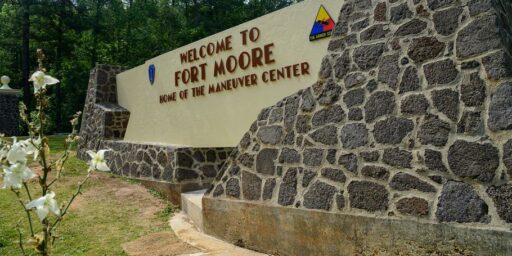Professional Military Education
Craig Henry has a long post comparing the education and training of military officers as contrasted with that of private business executives. It’s well worth reading.
There’s no other profession of which I’m aware that so heavily invests in educating its leaders. With a handful of exceptions, American military officers have a bachelor’s degree and some fairly intensive pre-commissioning training before they put on a uniform for real. They then immediately attend several months of professional training before their first assignment. For an Army officer, typical PME includes:
Officers usually pick up a master’s degree somewhere along the line, usually as senior captains. Additionally, as Craig notes, officers often get teaching assignments at one of the above schools. Or at one of the military academies, ROTC, or specialized schools. All in all, it is not at all unusual for an officer to spend over a third of his career in a school environment.






I’d add that reserve officers are expected to attend the same schools as their active duty counterparts (almost always by correspondence). I’m currently in the reserve equivalent of Joint Forces Staff College (Joint PME, which you forgot to add, typically is about three months for an O-4 or O-5).
Correct. Also, don’t forget about such resources as the National War College, Industrial College of the Armed Forces and the Army War College. The goal is turn our LTCs from branch specific guys to “joint” guys.
See: Peter Pace, Peter Schoomaker, etc. All those guys have been those schools, and all are now Generals who understand the full complement of working with all 4 forces. Goldwater-Nickles in 1986 is alive and well.
I wouldn’t be surprised to see a form of that applied to our senior level government workers in the near future as well.
Jem: My understanding is that JFSC is not part of the standard PME track but rather something only some attend?
Chris: Actually, DOD civilians already attend many of those courses and, indeed, have for years. And agreed on the jointness–that’s why I listed “Senior Service School” rather than “Army War College.”